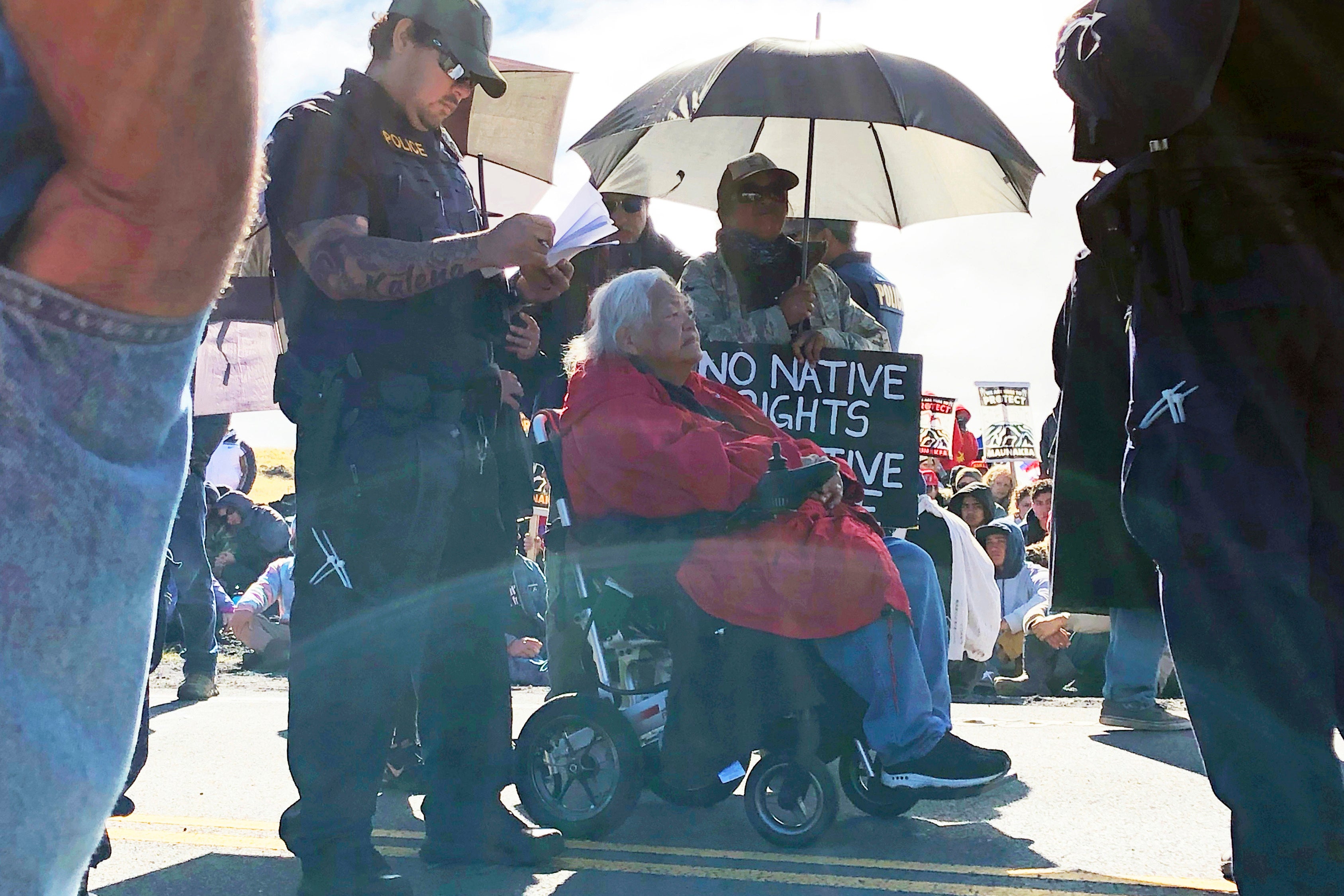Not guilty verdict for Hawaiian elders protesting telescope
A judge has found four Native Hawaiian elders arrested in 2019 while protesting a giant telescope planned for Hawaii's highest peak not guilty of obstructing the mountain's access road

Four Native Hawaiians arrested in 2019 while protesting against construction of a giant telescope on Hawaii's highest peak were not guilty of obstructing the mountain's access road, a judge ruled Friday.
Judge M. Kanani Laubach issued her verdict after a trial that began in January 2020 and saw significant delays because of the coronavirus pandemic.
Keli’i ’Ioane, Marie Alohalani Brown, Maxine Kahaulelio and Ranette Robinson were the first to go to trial out of 38 mostly Native Hawaiian kupuna, or elders, who were arrested during a swelling effort to stop construction of the Thirty Meter Telescope.
The other cases are pending.
Those who oppose the $1.4-billion project say it will desecrate land on Mauna Kea held sacred to Native Hawaiians.
Hundreds of protesters gathered at the base of the mountain in July 2019 to block construction of the telescope. The kupuna allowed themselves to be arrested and some used canes, while others were taken in wheelchairs to police vans. Those who could walk on their own were led away with their hands in zip ties.
An international consortium has a state permit to build the embattled telescope.
However, in announcing her verdict, the judge noted that during the trial, officials testified that the access road was closed and there were no permits issued for oversized vehicles.
“Evidence that Mauna Kea access road was closed or restricted to the public, coupled with no permits, equals no obstruction,” Laubach said. “There would be no unreasonable inconvenience or hazard.”
The state failed to meet its burden beyond a reasonable doubt, she said.
The state respects the verdict, which can't be appealed, said Gary Yamashiroya, special assistant to the state attorney general. The ruling is based solely on evidence presented at the trial of the four defendants, he said.
“During the trials of related defendants, the State presented evidence that TMT obtained all necessary permits to move equipment up the mountain," he said in an email. “It remains a crime to block a public highway, and the State will vigorously pursue the pending cases against the remaining defendants.”
Thirty Meter Telescope representatives didn't immediately comment on the verdict.
Those arrested for nonviolent civil disobedience while protecting Mauna Kea have been vindicated, Richard Sing, attorney for ’Ioane, said after the hearing.
“This was a petty misdemeanor trial, and it took more than a year and a half to complete,” Sing said. “It was a difficult and lengthy situation for someone to be under threat of criminal prosecution.”
Bookmark popover
Removed from bookmarks